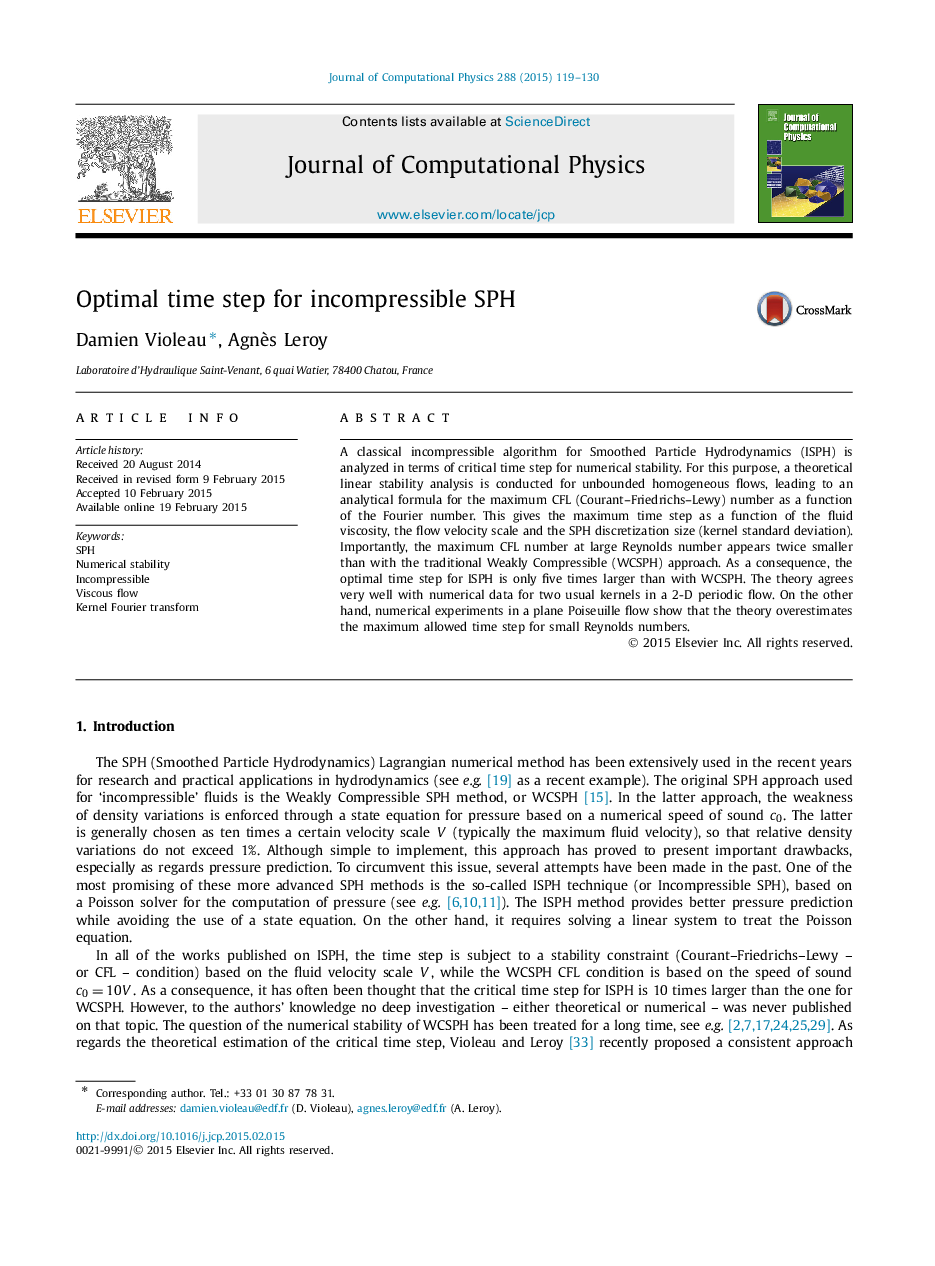| Article ID | Journal | Published Year | Pages | File Type |
|---|---|---|---|---|
| 520019 | Journal of Computational Physics | 2015 | 12 Pages |
A classical incompressible algorithm for Smoothed Particle Hydrodynamics (ISPH) is analyzed in terms of critical time step for numerical stability. For this purpose, a theoretical linear stability analysis is conducted for unbounded homogeneous flows, leading to an analytical formula for the maximum CFL (Courant–Friedrichs–Lewy) number as a function of the Fourier number. This gives the maximum time step as a function of the fluid viscosity, the flow velocity scale and the SPH discretization size (kernel standard deviation). Importantly, the maximum CFL number at large Reynolds number appears twice smaller than with the traditional Weakly Compressible (WCSPH) approach. As a consequence, the optimal time step for ISPH is only five times larger than with WCSPH. The theory agrees very well with numerical data for two usual kernels in a 2-D periodic flow. On the other hand, numerical experiments in a plane Poiseuille flow show that the theory overestimates the maximum allowed time step for small Reynolds numbers.
